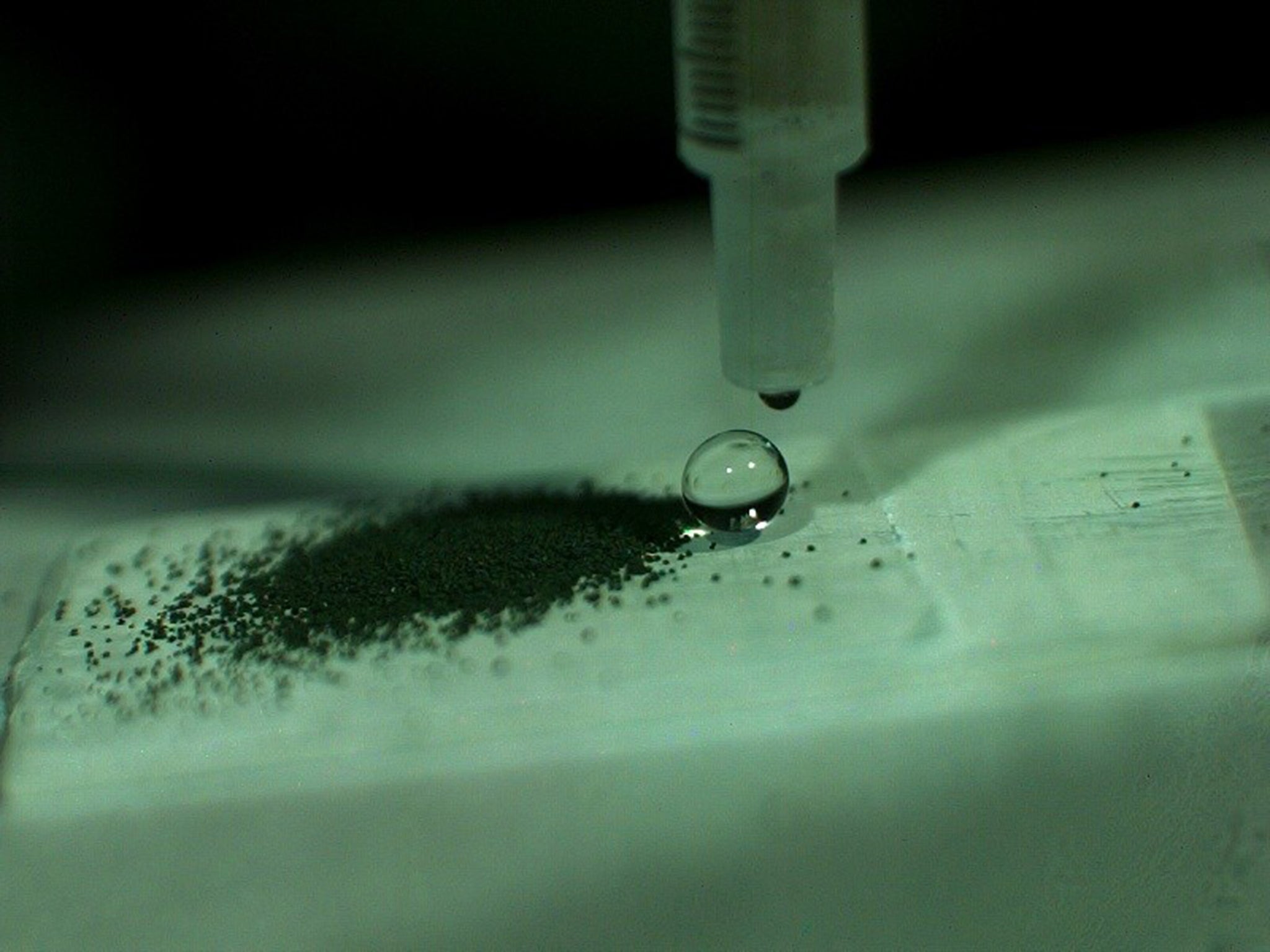Revolutionary new self-clean coating could spell the end of washdays
Water rolls away from the paint in ball-shaped droplets

Cars that never need washing, clothes that repel stains and windows that clean themselves are just three potential applications for a revolutionary new “paint” that never gets dirty, scientists have said.
The self-cleaning coating can be applied to soft materials such as cloth and paper as well as hard surfaces made of glass or steel. It keeps on repelling dirt even after being rubbed with sandpaper or scratched with a knife.
Studies show that surfaces that have been coated with the titanium-dioxide paint become super-repellent to water and oil, with liquid forming spheres that simply roll away, carrying dust and dirt with them.
Clothing soaked in the water-repellent liquid effectively becomes waterproof and tests have shown that inky stains can simply be shaken off the fabrics.
“Being waterproof allows materials to self-clean as water forms marble-shaped droplets that roll over the surface, acting like miniature vacuum cleaners picking up dirt, viruses and bacteria along the way,” said Yao Lu, a member of the research team at University College London.
Details of the self-cleaning coating were published last night in the journal Science by a team led by Professor Ivan Parkin, head of chemistry at UCL. He has specialised in self-cleaning technology based on surfaces that are super-hydrophobic – highly repellent to water. “It makes surfaces so super-hydrophobic that it causes water to form ball-shaped droplets that roll away,” Professor Parkin said.
The hydrophobic tendency of the titanium-dioxide paint is so strong that when the bottoms of toy boats were coated with it they floated higher in the water. If the same coating could be applied to the hulls of full-size ships they would need between 10 and 15 per cent less fuel, Professor Parkin said.
Join our commenting forum
Join thought-provoking conversations, follow other Independent readers and see their replies
Comments
Bookmark popover
Removed from bookmarks